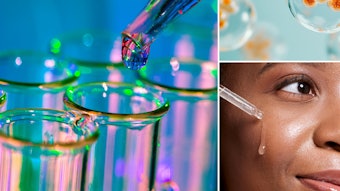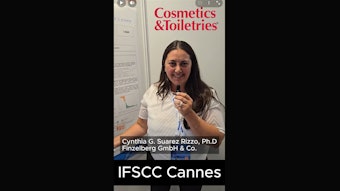Dear C&T Today:
I am a biologist in the biotech industry involved in the production of growth hormone by fermentation of genetically modified bacteria. I run a small natural cosmetics company in Mexico that produces products with essential oils, vegetable oils and aloe vera--and in all cases, with less than 3% chemicals.
When I saw the July 19 article, "Taking 'Naturals' to the Genome," I felt my hair stand on end. Please do not join the game of biotech companies trying to convince the world that biotech products are natural. This is not true--never.
1. A natural molecule is three dimensional. If it is "very easy" to create a chain of atoms to produce a molecule on paper, it is much more difficult to give this molecule the three-dimensional structure of the natural one. Just remember that the prion of mad cow disease is a three-dimensional variation of a natural molecule we have in big quantities in the nervous system. The effect of this small difference is tremendous.
2. Another example: the well-known palmarosa (Cymbopogon martini ) essential oil in Chanel No. 5 has different variants, meaning the same species of plant can be different in different cases. For example, the Vitis vinifera vine has different variants: cabernet, sauvignon, pinot, etc. In the case of palmarosa, var. motia from India, the essential oil contains 25 different molecules in different proportions. This natural mix of molecules is the "good Lord chemistry" that makes palmarosa such a marvel, like any other natural product. A chemical palmrosa perfume would only include two or three of those molecules (geraniol, geranyl acetate and linalol, for example).
3. If a company wants to make "natural" palmarosa by biotech means, it really should incorporate the complete sequence needed to produce the 25 molecules in the genome of the producing bacteria or yeast . This will not be possible before a long, long time. Thus, a product created by biotechnology must be considered as such and not "natural."
4. The claim in the article stating that the cost of energy would be less is false. To produce biotech products, manufacturers need to work in nearly pharmaceutical conditions, if not stricter. This takes a great deal of direct and indirect energy; the statement made is just another false commercial argument.
So my opinion is that instead of convincing people that biotech products are natural, like GMO (genetically modified organisms), it would be much better to teach them that in addition to the two previous categories of products,"natural" and "chemical," there is a third category: "biotech." This way, people can make informed choices without error. Maybe within a few years, biotechnology-produced products will be the new fashion.
Regards,
BD










